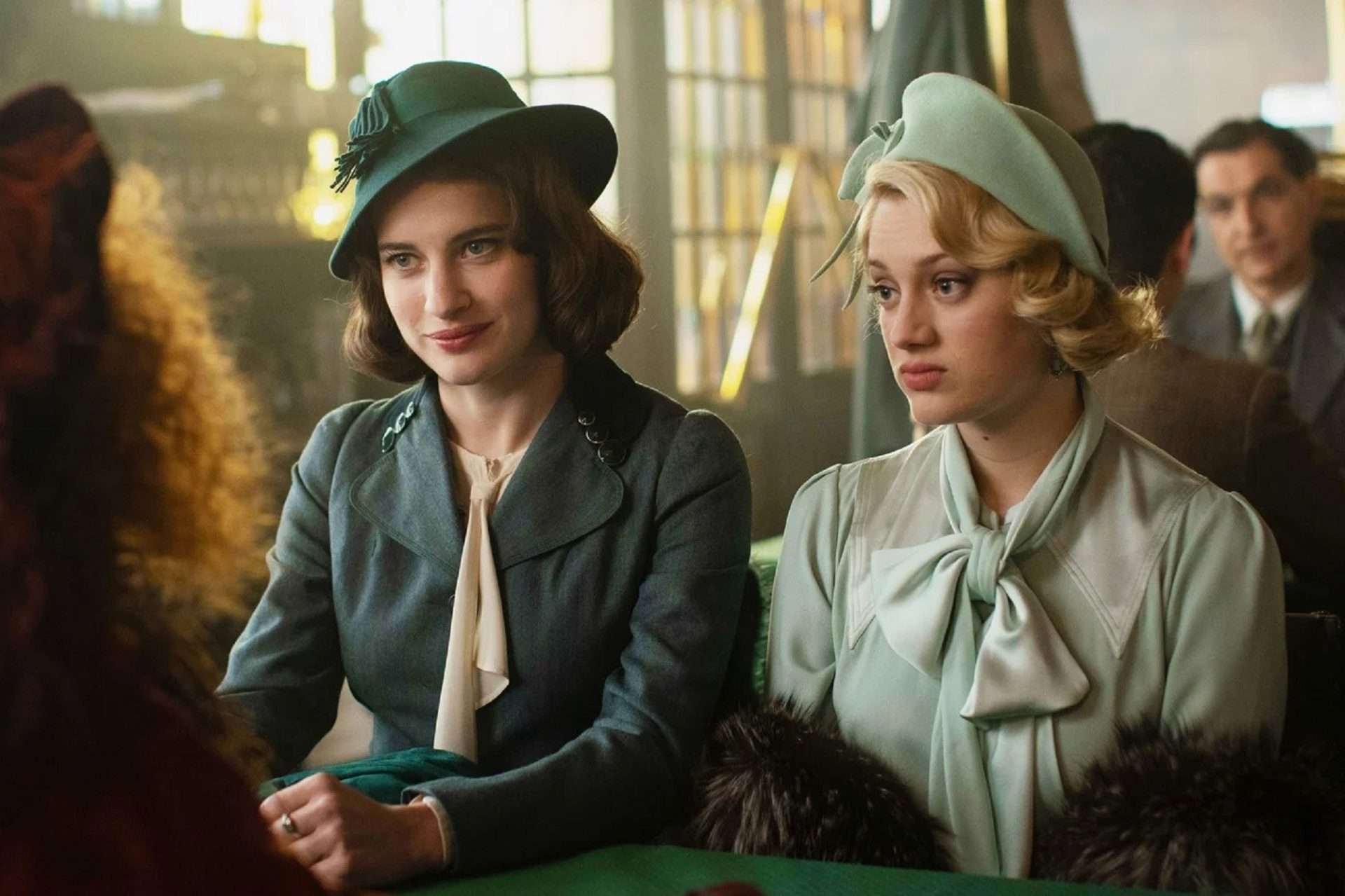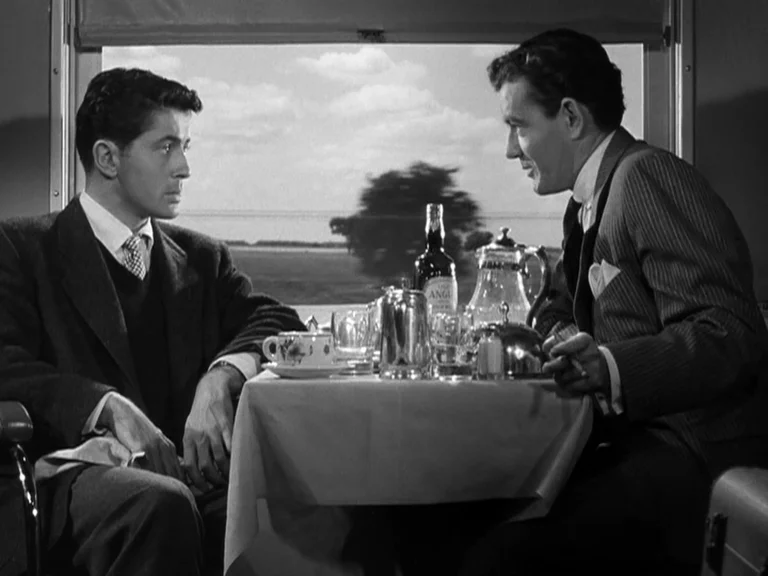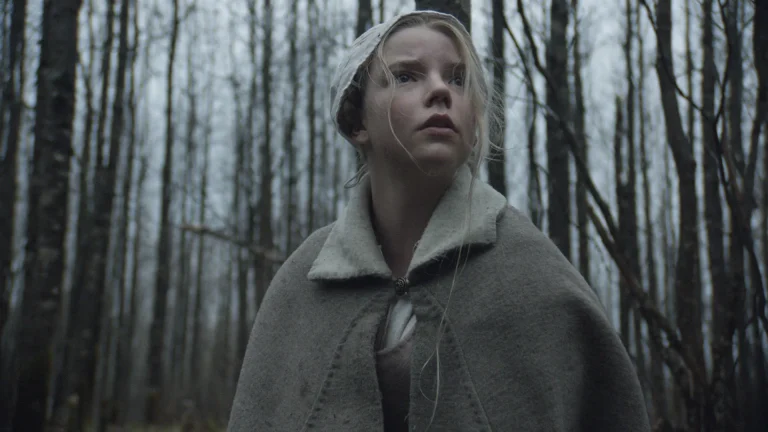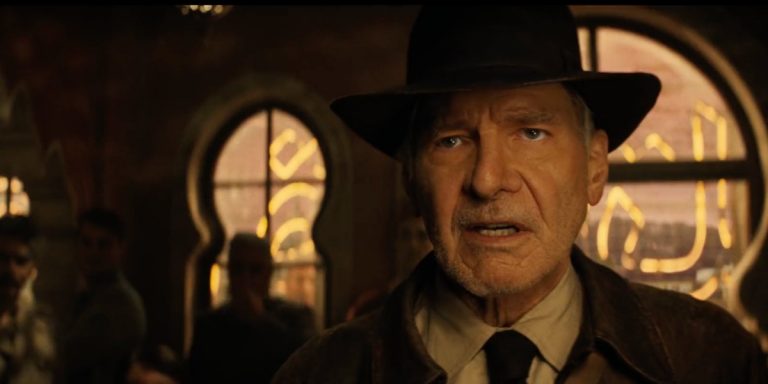The Crime is Mine (2023, Mon Crime) Movie Review: It is significantly challenging for movies to balance tonalities at the complete opposite ends of a genre spectrum. One of the clearest examples is a murder mystery that doubles as a screwball comedy. The difficulties in tackling a screwball comedy mostly lie with the intricacy of supplanting the tonality, rhythm, and verve of an Ernest Lubitch-styled screwball comedy with sharp, witty dialogues and slapstick comedy for a modern iteration of films.
With all of the above caveats, it would be hard to state that Ozon completely pulls off bringing back the screwball comedies and reintroducing them to a modern audience. However, what Ozon manages to successfully evoke is the absolute irreverence and lightness of the premise of the film while not being afraid to touch on relevant topics for the current climate. There might be an argument that his handling sometimes becomes extremely dicey and almost threatens to lose the plot due to his lightness.
The movie follows Madeline (Nadia Tereskeiwicz), an aspiring actress who, as the film opens, is seen exiting a mansion and walking back towards the more economical strata of Parisian culture. She shares an apartment with her friend Pauline (Rebecca Mardier), a penniless lawyer, and they are struggling to pay the rent. She is also in a relationship with Adre Bonnard, the spoilt, idiot son of the owner of Bonnard Tyres, who proposes to Madeline to be his mistress once he marries a rich heiress fixed by his father for a dowry of $5 million.
Madeline’s hapless situation is compounded when she learns that the producer, from whose house she had come back (after rejecting his unsolicited advances), has been murdered. It’s an unexpected ray of sunshine, as she believes the “pig” has been murdered, but the rays start to shine brighter when the incompetent Judge Rabusset brings her in for questioning. Planning with Pauline, she confesses to the crime she has no hands in. With the help of a touching and empathetic monologuing with deft touches of sensationalism, which also helps her court case become a sort of audition tape, she catapults herself and Pauline to fame in French society as a vanguard of feminism and makes a stand against the oppression of women. As the two friends enjoy the “fruits of their labor,” a revelation threatens to destroy their carefully constructed narrative.

It is almost hard to talk about the intricacies of the film without at least touching on the premise because a lot is going on, both above the surface and beneath the epilimnion of the almost boiling cauldron of narratives that Ozon deftly tries to touch and satirize. The theatrical inspiration is almost evident, but gender-flipping the lawyer character from the original allows Ozon to touch on the perspectives of the sorority as well as the queer subtext, especially in the case of Pauline, who harbors feelings for her best friend. Because the chemistry between the two actresses is so strong, it wouldn’t be a stretch to imagine Ozon completely leaning in, letting the subtext become the text. But that would also entail Ozon leaning into modern-day convictions and slapping them on the premise of a 1930s storyline.
His handling of the incident between Madeline and the film producer is a callback to the #MeToo movement, and there is a clear moment where the audience almost wonders whether Ozon is actually poking holes in the movement. What makes this movie successful is the clear ironic distance Ozon maintains, sprinkling in the anachronistic dialogue between the characters but not overdoing it. There is also a clear love for the classic films of that era, with an idealistic approach to Parisian culture in terms of utilizing art-deco architecture. Still, the actual beating heart of the narrative is anything but old-fashioned.
In classic comedy convention but feeling more relevant because of the premise, almost every man shown here seems to be prime for manipulation to survive for women in that era, serving as a heightened look at the patriarchy’s chokehold and how women had to survive for basic emancipation. Even within these moments, Ozon has time to delve into nuance through a comedy of errors and a scene-stealing performance by Danny Boon as plumbing magnate Fernand Palmarede.
The star of the show, who truly comes in a tad bit too late but steals the show, is Isabelle Huppert as aging actress Odette Chaumette. She knows the material she is playing with and nibbles through the scenery, eliciting the biggest amount of laughter. The character of Huppert also works as a commentary on silent-era actresses being past their time in the age of talkies. At the same time, her presence and her interactions with our two protagonists heighten the overall theatricality and the deftness in duplicity that the narrative peddles through its characters.
The ending of the movie, almost a homage to Francois Truffaut’s “The Last Metro,” seems perfectly apt in its depiction of theatricality, overtaking the ideal potency of the truth and working overtime to become the overarching truth through literature and art. At the end of the day, Ozon never loses his grip on the narrative’s frothy and overall silly nature, even though the convolution, especially towards the end of the third act, threatens to derail it. But his focus on the growing sisterhood between the female characters and the relationship between the two protagonists gives the narrative a strong foundation to stand on, ably supported by a strong cast. The modern topics it chooses to deal with needed a little more nuance and a smidge more depth, but the juggling act of so many disparate tonalities more than makes up for it.









